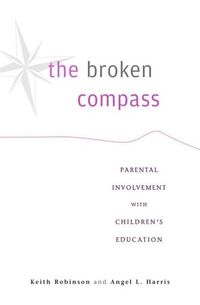

Purchase
Parental Involvement with Children's Education
Harvard University Press
December 2013
On Sale: December 9, 2013
322 pages
ISBN: 0674725107
EAN: 9780674725102
Kindle: B00GG0C9YS
Hardcover / e-Book
Add to Wish List
Non-Fiction
It seems like common sense that children do better when
parents are actively involved in their schooling. But how
well does the evidence stack up? The Broken Compass puts
this question to the test in the most thorough scientific
investigation to date of how parents across socioeconomic
and ethnic groups contribute to the academic performance of
K-12 children. The study's surprising discovery is that no
clear connection exists between parental involvement and
improved student performance. Keith Robinson and Angel Harris assessed over sixty measures
of parental participation, at home and in school. Some of
the associations they found between socioeconomic status and
educational involvement were consistent with past studies.
Yet other results ran contrary to previous research and
popular perceptions. It is not the case that Hispanic and
African American parents are less concerned with education
than other ethnic groups--or that "tiger parenting" among
Asian Americans gets the desired results. In fact, many
low-income parents across a wide spectrum want to be
involved in their children's school lives, but they often
receive little support from the school system. And for
immigrant families, language barriers only worsen the problem. While Robinson and Harris do not wish to discourage parents'
interest, they believe that the time has come to seriously
reconsider whether greater parental involvement can make
much of a dent in the basic problems facing their children's
education today. This provocative study challenges some of
our most cherished beliefs about the role of family in
educational success.
Comments
No comments posted.
Registered users may leave comments.
Log in or register now!
| 


 © 2003-2024 off-the-edge.net
all rights reserved Privacy Policy
© 2003-2024 off-the-edge.net
all rights reserved Privacy Policy